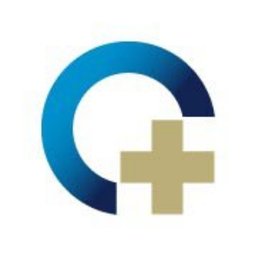The position
The Autophagy Research Group at the Department of Medical Biology, Faculty of Health Sciences, UiT The Arctic University of
Norway is recruiting a motivated PhD candidate to join the project: “Uncovering Novel Regulators of Early Autophagy at the Omegasome”
The project is led by Associate Professor Viola Nähse, whose research focuses on selective autophagy, particularly the molecular mechanisms governing phagophore formation at the endoplasmic reticulum (ER). The group is especially interested in understanding how omegasomes—specialized PI3P-rich ER subdomains—control early autophagosome biogenesis and contribute to cargo selectivity.
The position is for a period of four years. The nominal length of the PhD programme is three years. The fourth year is distributed as 25 % each year and will consist of teaching and other duties. The objective of the position is to complete research training to the level of a doctoral degree. Admission to the PhD programme is a prerequisite for employment, and the programme period starts on commencement of the position.
The workplace is at UiT in Tromsø. You must be able to start in the position within a reasonable time after receiving the offer.
The project / The position’s field of research
The PhD candidate will investigate how early autophagy structures form at the ER, with a focus on membrane remodeling and cargo-selective autophagy. The project addresses fundamental questions
related to the molecular regulation of autophagosome formation, using cell biological, genetic, and imaging-based approaches.
The candidate will explore the function and regulation of proteins localized to ER subdomains where autophagy is initiated. The work will involve mechanistic studies in human cell lines, with the aim of
uncovering how these ER-associated structures contribute to selective autophagy pathways, such as mitophagy.
The PhD fellow will join a collaborative and international research environment and work closely with other group members, including bachelor’s and master’s students, postdocs, and external collaborators.
Duties and Responsibilities
- Conduct independent research under supervision within the project framework
- Generate and analyze stable CRISPR knock-out and knock-in cell lines
-
Perform proximity labeling assays, immunoprecipitations, and proteomics sample
preparation - Analyze fixed and live-cell imaging data using fluorescence microscopy
-
Quantify autophagy flux and selective autophagy using biochemical and imaging-based
assays - Participate in weekly group meetings, journal clubs, and departmental seminars
- Contribute to teaching and supervision (25% of the position) at bachelor’s and master’s level
Contact
For further information about the position, please contact Associate Professor Viola Nähse:
- e-mail: [email protected]
Qualifications
Required Qualifications:
-
Master’s degree in molecular biology, cell biology, biomedicine, medicine or a
related discipline. - Practical experience with mammalian cell culture and standard molecular biology techniques such as cloning and WB.
- Applicants must document fluency of in English and be able to work in an international environment. Nordic applicants can document their English capabilities by attaching their high school diploma.
Desired Qualifications:
- Experience or strong interest in autophagy, membrane biology, or intracellular trafficking.
- Hands-on experience with CRISPR/Cas9, fluorescence microscopy, or proteomics.
- Familiarity with image analysis and quantification (e.g., Fiji/ImageJ, CellProfiler).
We will also emphasize motivation and personal suitability for the position. We are looking for candidates who:
- Strong motivation and scientific curiosity.
- Ability to work independently and in a structured manner.
- Collaborative and team-oriented mindset.
- Open-minded, flexible, and receptive to feedback.
- High level of integrity and adherence to good scientific practice.
- Willingness to present and discuss research within and beyond the team.
In the assessment, the emphasis is on the applicant's potential to complete a research education based on the master's thesis or equivalent, and any other scientific work. In addition, other experience of significance for the completion of the doctoral programme may be given consideration.
If the candidate does not document proficiency in Norwegian, Swedish or Danish at level A2, then the doctoral fellow will be offered a language course before the end of the fixed-term period. UiT will facilitate this if desirable.
As many people as possible should have the opportunity to undertake organized research training. If you already hold a PhD or have equivalent competence, we will not appoint you to this position.
Admission to the PhD programme
For employment in the PhD position, you must be qualified for admission to the PhD programme at the Faculty of Health Sciences and participate in organized doctoral studies within the employment period.
Admission normally requires:
- A bachelor's degree of 180 ECTS and a master's degree of 120 ECTS, or an integrated master's degree of 300 ECTS.
- A master's thesis with a scope corresponding to at least 30 ECTS for a master's degree of 120 ECTS.
- A master's thesis with a scope corresponding to at least 20 ECTS for an integrated master's degree of 300 ECTS.
Applicants must have a grade of C or better on the master's thesis and have a grade point average of C or better for the master's degree. A more detailed description of admission requirements can be found here.
If you are employed in the position, you will be provisionally admitted to the PhD programme. Application for final admission must be submitted no later than two months after taking up the position.
Applicants with a foreign education will be subjected to an evaluation of whether the educational background is equal to Norwegian higher education, following national guidelines from Norwegian Directorate for Higher Education and Skills. Depending on which country the education is from, one or two additional years of university education may be required to fulfil admission requirements, e.g. a 4-year bachelor's degree and a 2-year master's degree. UiT normally accepts higher education from countries that are part of the Lisbon Recognition Convention.
Inclusion and diversity
UiT The Arctic University of Norway is working actively to promote equality, gender balance and diversity among employees and students, and to create an inclusive and safe working environment. We believe that inclusion and diversity are a strength, and we want employees with different competencies, professional experience, life experience and perspectives.
If you have a disability, a gap in your CV or immigrant background, we encourage you to tick the box for this in your application. If there are qualified applicants, we invite at least one in each group for an interview. If you get the job, we will adapt the working conditions if you need it. Apart from selecting the right candidates, we will only use the information for anonymous statistics.
We offer
- An engaging scientific environment within a strong and international team
- Dedicated mentoring and training in scientific writing, data presentation, and career development
- An open and inclusive working atmosphere with committed colleagues
- Flexible working hours and a state collective pay agreement
- Pension scheme through the state pension fund
- PhD Fellows are normally given a salary of 550 800 NOK/year with a 3% yearly increase
Norwegian health policy aims to ensure that everyone, irrespective of their personal finances and where they live, has access to good health and care services of equal standard. As an employee you will become member of the National Insurance Scheme which also include health care services.
More practical information about working and living in Norway can be found here: https://uit.no/staffmobility
Application
Your application must include:
- Cover letter explaining your motivation and research interests
-
CV containing an overview of education, experience, professional work and pedagogical
qualifications -
Diploma for bachelor's and master's degree (in original language and
translated) -
Official transcripts of grades/academic record for bachelor's and master's degree (in original language and
translated) - Explanation of the grading system for foreign education (Diploma Supplement if available)
- Documentation of English proficiency
- Documentation of proficiency in Norwegian, Swedish, or Danish at a minimum of level A2 (if available)
- References with contact information
- Master’s thesis, and any other academic works
All documentation to be considered must be in a Scandinavian language or English. Diplomas and transcripts must also be submitted in the original language, if not in English or Scandinavian. If English proficiency is not documented in the application, it must be documented before starting in the position. We only accept applications and documentation sent via Jobbnorge within the application deadline.
Assessment
The applicants will be assessed by an expert committee. The committee's mandate is to undertake an assessment of the applicants' qualifications based on the written material presented by the applicants, and the detailed description draw up for the position. A copy of the assessment report will be sent to all applicants.
The applicants who are assessed as best qualified will be called to an interview. The interview should among other things, aim to clarify the applicant’s motivation and personal suitability for the position.
General information
The appointment is made in accordance with State regulations and guidelines at UiT. At our website, you will find more information for applicants.
Remuneration for the position of PhD Fellow is in accordance with the State salary scale code 1017. A compulsory contribution of 2 % to the Norwegian Public Service Pension Fund will be deducted. You will become a member of the Norwegian Public Service Pension Fund, which gives you many benefits in addition to a lifelong pension: You may be entitled to financial support if you become ill or disabled, your family may be entitled to financial support when you die, you become insured against occupational injury or occupational disease, and you can get good terms on a mortgage. Read more about your employee benefits at: spk.no.
A shorter period of appointment may be decided when the PhD Fellow has already completed parts of their research training programme or when the appointment is based on a previous qualifying position PhD Fellow, research assistant, or the like in such a way that the total time used for research training amounts to three years.
We process personal data given in an application or CV in accordance with the Personal Data Act (Offentleglova). According to the Personal Data Act information about the applicant may be included in the public applicant list, also in cases where the applicant has requested non-disclosure. You will receive advance notification in the event of such publication, if you have requested non-disclosure.
Eallju - Developing the High North
UiT The Arctic University of Norway is a multi-campus research university and the northernmost university of the world. Our central location in the High North, our broad and diverse research and study portfolio, and our interdisciplinary qualities make us uniquely suited to meet the challenges of the future. At UiT you can explore global issues from a close-up perspective.
Credibility, academic freedom, closeness, creativity and commitment shall be hallmarks of the relationship between our employees, between our employees and our students and between UiT and our partners.
The Faculty of Health Sciences at UiT The Arctic University of Norway represents a newly created entity gathering almost all possible health study programs. This facilitates an unique interdisciplinarity and innovation in health education and research. We work closely with the services in the North to solve tomorrow's challenges.
Read more about us at uit.no/helsefak
Deadline
4th September 2025
Employer
UiT The Arctic University of Norway
Municipality
Scope
Fulltime
Duration
Fixed Term
Place of service

